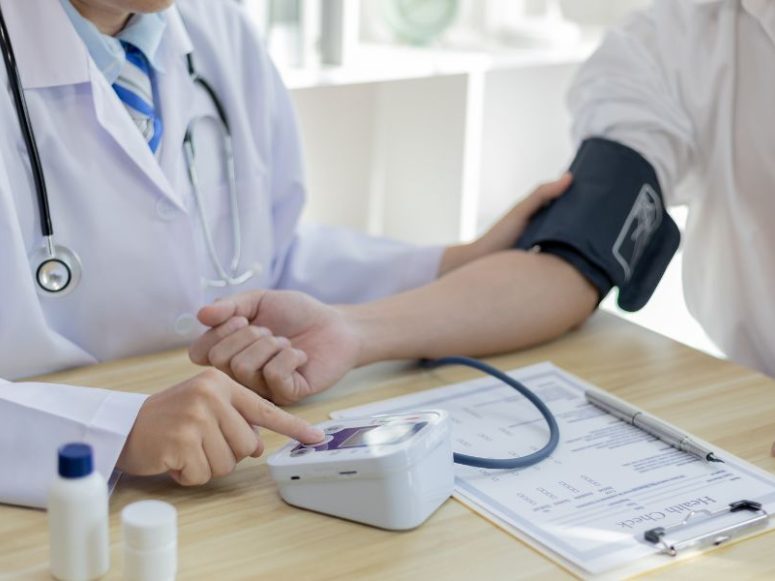Key Takeaways
- High blood pressure, or hypertension, is a common condition that can lead to serious health problems if left untreated.
- Managing high blood pressure involves a combination of lifestyle changes, medication, and regular monitoring.
- Residents of Western New York have access to a variety of resources to help them manage their blood pressure and improve their overall health.
1. Understanding High Blood Pressure
High blood pressure, also known as hypertension, is a condition in which the force of the blood against the artery walls is too high. This can damage the arteries and lead to serious health problems such as heart disease, stroke, and kidney disease. According to the American Heart Association, nearly half of all adults in the United States have high blood pressure [1].
Many people with high blood pressure have no symptoms, which is why it is often called the "silent killer." The only way to know if you have high blood pressure is to have it checked regularly by a healthcare provider. A blood pressure reading of less than 120/80 mm Hg is considered normal. A reading of 130/80 mm Hg or higher is considered high blood pressure.
2. Lifestyle Changes for Blood Pressure Management
Making healthy lifestyle changes is an important part of managing high blood pressure. The American Heart Association recommends the following [1]:
| Lifestyle Change | Recommendation |
| Healthy Diet | Eat a diet rich in fruits, vegetables, and whole grains. Limit your intake of sodium, saturated fat, and added sugars. The DASH (Dietary Approaches to Stop Hypertension) diet is a good option for people with high blood pressure. |
| Regular Exercise | Get at least 150 minutes of moderate-intensity aerobic exercise or 75 minutes of vigorous-intensity aerobic exercise per week. |
| Weight Management | Maintain a healthy weight. If you are overweight, losing even a small amount of weight can help lower your blood pressure. |
| Limit Alcohol | If you drink alcohol, do so in moderation. This means no more than one drink per day for women and no more than two drinks per day for men. |
| Quit Smoking | Smoking damages your blood vessels and raises your blood pressure. Quitting smoking is one of the best things you can do for your overall health. |
3. Medication for High Blood Pressure
In addition to lifestyle changes, many people with high blood pressure will need to take medication to lower their blood pressure. There are many different types of blood pressure medications available, and your doctor will work with you to find the best one for you. According to the Mayo Clinic, some of the most common types of blood pressure medications include [2]:
- Diuretics: These medications help your body get rid of excess sodium and water, which can lower your blood pressure.
- ACE inhibitors: These medications help relax your blood vessels by blocking the production of a hormone that narrows them.
- Angiotensin II receptor blockers (ARBs): These medications also help relax your blood vessels by blocking the action of a hormone that narrows them.
- Calcium channel blockers: These medications help relax the muscles of your blood vessels and can also slow your heart rate.
It is important to take your blood pressure medication as prescribed by your doctor. Do not stop taking your medication without talking to your doctor first, as this can cause your blood pressure to rise suddenly.
4. Regular Monitoring and Support
Regularly monitoring your blood pressure at home can help you and your doctor see how well your treatment plan is working. You can buy a home blood pressure monitor at most pharmacies. Your doctor or nurse can show you how to use it correctly.
In addition to home monitoring, it is important to see your doctor for regular check-ups. Your doctor will check your blood pressure and make sure your treatment plan is still right for you. They may also recommend other tests to check for complications of high blood pressure, such as heart disease or kidney disease.
5. Resources for Western NY Residents
Residents of Western New York have access to a variety of resources to help them manage their high blood pressure. SOM Medical Practice offers comprehensive primary care services, including blood pressure screening and management, at our locations in Niagara Falls, Lockport, Olean, Depew, and Hamburg. Our team of experienced healthcare providers can work with you to develop a personalized treatment plan to help you control your blood pressure and reduce your risk of complications.
Contact us today to schedule an appointment and take control of your heart health.
This blog post is for informational purposes only and should not be considered medical advice. Always consult with a qualified healthcare provider for any health concerns or before making any decisions related to your health or treatment.
References
[1] American Heart Association. (2023). Changes You Can Make to Manage High Blood Pressure. https://www.heart.org/en/health-topics/high-blood-pressure/changes-you-can-make-to-manage-high-blood-pressure
[2] Mayo Clinic. (2023). High blood pressure (hypertension). https://www.mayoclinic.org/diseases-conditions/high-blood-pressure/diagnosis-treatment/drc-20373417








